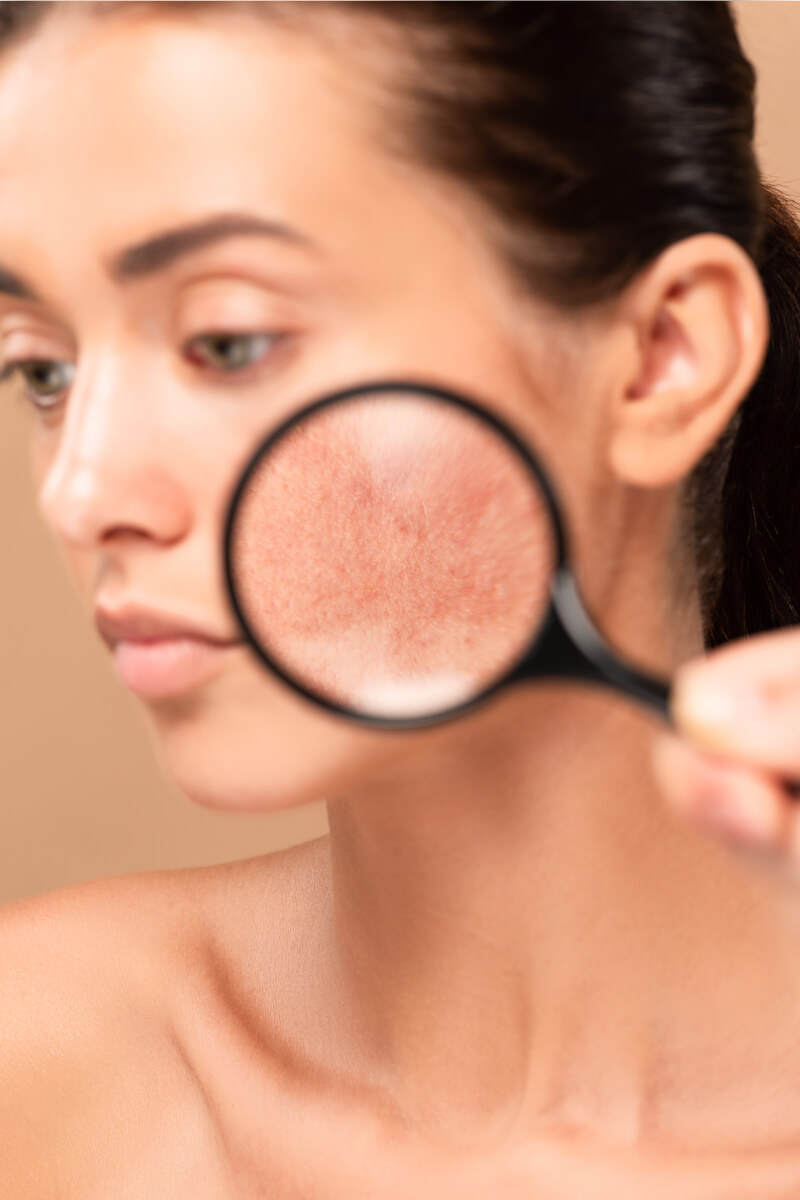Sensitive Skin SOS: Gentle Care Tips for Reactive Complexions
Do you find your skin reacting to seemingly everything? You’re not alone. Many Brits struggle with sensitive skin, which can turn everyday skincare into a minefield. Let’s explore why your skin might be throwing a fit and discover some soothing solutions that won’t leave your complexion in a tizzy.
Understanding Sensitive Skin
Sensitive skin isn’t just a fleeting inconvenience—it’s a genuine concern that affects many people across the UK. But what exactly does it mean to have sensitive skin?

What Defines Sensitive Skin?
Sensitive skin is characterised by its tendency to react easily to environmental factors, skincare products, or even stress. Common symptoms include:
Redness and Flushing
Your skin may appear flushed or develop patches of redness, especially after exposure to certain triggers.
Burning or Stinging Sensations
You might experience discomfort or a tingling feeling when applying products or exposing your skin to environmental factors.
Dryness and Flaking
Sensitive skin often struggles to retain moisture, leading to dry, rough patches.
Breakouts
Paradoxically, sensitive skin can be prone to both dryness and acne.
Common Causes of Skin Sensitivity
Understanding what triggers your skin’s reactivity is crucial for managing it effectively. Some common culprits include:
Genetics
Some people are simply born with more reactive skin due to their genetic makeup.
Environmental Factors
Pollution, extreme temperatures, and low humidity can all wreak havoc on delicate complexions.
Skincare Products
Harsh ingredients, fragrances, or overly complex routines can overwhelm sensitive skin.
Underlying Skin Conditions
Conditions like rosacea or eczema can contribute to increased skin sensitivity.
Gentle Skincare Strategies for Sensitive Complexions
Now that we’ve identified what sensitive skin is and what might be causing it, let’s explore some strategies to keep your delicate complexion happy and healthy.
Simplify Your Skincare Routine
When it comes to sensitive skin, less is often more. Streamlining your routine can help identify triggers and reduce the risk of irritation.
Cleanse with Care
Opt for a gentle, fragrance-free cleanser that won’t strip your skin of its natural oils. Look for products labelled ‘for sensitive skin’ or ‘hypoallergenic’.
Moisturise Mindfully
Choose a simple, fragrance-free moisturiser to help lock in hydration without overwhelming your skin.
Sun Protection is Non-Negotiable
Sensitive skin is often more susceptible to sun damage. Use a broad-spectrum SPF designed for sensitive skin to protect your complexion daily.
Introducing New Products
When trying new skincare items, proceed with caution to avoid potential reactions.
Patch Test
Always perform a patch test on a small area of skin before applying a new product to your face.
One at a Time
Introduce new products gradually, spacing them out by at least a week to identify any potential irritants.
Gentle Exfoliation for Sensitive Skin
While harsh scrubs are a no-go for sensitive skin, gentle exfoliation can still be beneficial when done correctly.
Chemical Exfoliants
Opt for mild chemical peels with ingredients like lactic acid or low concentrations of glycolic acid, which can provide gentle exfoliation without irritating sensitive skin.
Frequency Matters
Limit exfoliation to once a week or less, depending on your skin’s tolerance.
Professional Treatments for Sensitive Skin
Sometimes, at-home care isn’t enough to address sensitive skin concerns. Professional treatments can offer targeted solutions when performed by experienced practitioners.
Calming Facial Treatments
Soothing facial treatments can help reduce inflammation and strengthen your skin’s barrier function.
LED Light Therapy
This gentle treatment uses specific wavelengths of light to calm irritation and promote healing without heat or abrasion.
Cooling Masks
Professional-grade cooling masks can provide immediate relief for inflamed or reactive skin.
Advanced Treatments for Specific Concerns
For more persistent issues, your aesthetician might recommend specialised treatments.
Laser Therapy for Redness
Certain laser treatments can target visible blood vessels, reducing persistent redness associated with conditions like facial redness.
Customised Chemical Peels
While it might sound counterintuitive, very gentle chemical peels formulated for sensitive skin can improve texture and reduce reactivity over time.
Lifestyle Factors for Managing Sensitive Skin
Your skincare routine is just one piece of the puzzle. Consider these lifestyle factors to support your sensitive skin from the inside out.
Diet and Hydration
What you put into your body can affect your skin’s behaviour.
Stay Hydrated
Drinking plenty of water helps maintain your skin’s moisture balance.
Anti-Inflammatory Foods
Incorporate foods rich in omega-3 fatty acids and antioxidants to support skin health from within.
Stress Management
Stress can exacerbate skin sensitivity, creating a vicious cycle.
Relaxation Techniques
Practice stress-reduction methods like meditation or yoga to help calm both your mind and your skin.
Quality Sleep
Ensure you’re getting enough restful sleep to support your skin’s natural repair processes.
Dealing with sensitive skin can feel like a full-time job, but with the right approach, you can achieve a calmer, more comfortable complexion. Remember, everyone’s skin is unique, so what works for one person might not work for another. Be patient with your skin, and don’t hesitate to consult a skincare professional if you’re struggling to manage your sensitive skin on your own.
By understanding your triggers, simplifying your routine, and incorporating gentle, targeted treatments, you can give your sensitive skin the TLC it deserves. Here’s to happier, healthier skin that lets your natural beauty shine through!
